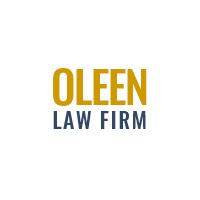Mc Farland Foreclosure Lawyer, Kansas
Not enough matches for Mc Farland Foreclosure lawyer.
Below are all Mc Farland Real Estate lawyers.
Bentson R. Oleen
✓ VERIFIEDDivorce & Family Law, Criminal, Accident & Injury, Estate, Real Estate
We provide representation in family law, personal injury, criminal and estate law.
If you need an attorney that will always protect your best interests, call the Oleen Law Firm today. The Oleen Law Firm is committed to defending our ... (more)
Clayton C Skaggs
Commercial Real Estate, Real Estate, Federal Trial Practice, Corporate, Business
Status: In Good Standing
Victor Davis
Corporate, Communication & Media Law, Estate Planning, Real Estate
Status: In Good Standing


